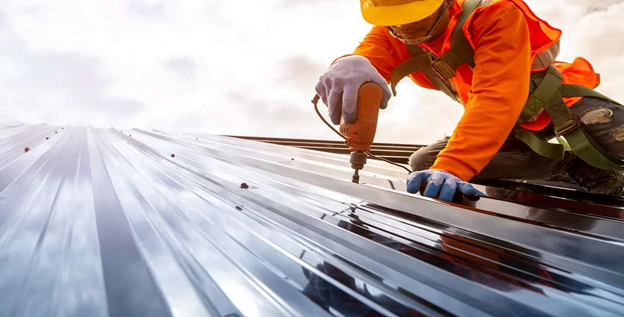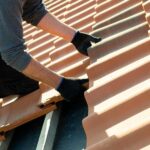Commercial buildings need regular maintenance not only because they’re used for various businesses or aesthetic purposes. Keep in mind that there are environmental factors that may contribute to wear and tear, especially when it comes to its roof. Other structures, such as foundations and walls can be affected, too, since seasons change.
This means that the owner must make sure that every part and corner of his property would function without causing inconveniences to tenants. In this way, their business operations won’t be affected as well, especially when there’s a problem with the roofing system. For example, if there are leaks from ductwork, the workplace will have to suffer since their belongings might get wet.
When that happens, the owner will receive complaints and his tenants may ask for compensation due to damages, thus, it must be prevented. We can always hire roofing service contractors for commercial and industrial buildings for maintenance, installation, and repairs. Therefore, we should learn the basics of roofing systems and how to choose a reliable company.
What’s a commercial roofing system?
Generally, roofs are designed to protect our property and its structure from various elements that may cause damage. No matter what type of roof you choose, its primary function and ultimate goal are still the same – learn more here for a choosing guide. Thus, this must be installed properly by professional roofers from your locality.
However, to keep it performing its function well, we must integrate regular maintenance and inspections. Doing this will prolong its shelf life and prevent frequent repairs since the system’s condition can be monitored. This means that installing them isn’t the end of the owner’s responsibility, thus, he must maintain quality through professional help.
Don’t forget that repairs and installations require expertise to ensure high-quality jobs. The contractors will also help you choose the right and appropriate material suitable for your location. Therefore, consider hiring the most reliable company for a worthy investment and ultimate result.
Essential Aspects
These are the services provided by contractors. So make sure that you’re going to contact the one who can guarantee quality results.
- Installation – This varies depending on the type of roofing material and area covered. If it’s more complicated, then the experts need more time to complete this project. No matter how much this project costs, contracts must be accomplished on time.
- Inspection – The experts will inspect your roof thoroughly to detect problems and assess situations. Most of the parts to be checked are membranes, gutters, vents, pipes, flashing, decking, etc. With regular inspections, problems can be identified and prevented.
- Maintenance – It’s the best way to prevent wear and tear, thus, promoting longevity – click https://kalkinemedia.com/news/world-news/highlighting-the-paramount-importance-of-commercial-roof-waterproofing for further reading. With this service, recurrent repairs and damages can be prevented, too. Therefore, it must be incorporated into the building’s efficacy program.
Different Types
Don’t simply choose a material based on popularity or price. Make sure that it will benefit you the most since this step is essential to your investment and profit.
- Spray Polyurethane Foam
Entrepreneurs who opt for eco-friendly routes may choose an SPF type. This comes in a liquid form and must be sprayed on the existing roof. It will then expand and turn out as foam to create a solid layer. With proper installation and regular maintenance, it may last up to 50 years or more.
Some entrepreneurs prefer this because it’s energy-efficient with a high R-value. Since it’s durable and seamless, you can avoid frequent tear-offs, leaks, cracks, or splits. By the way, SPF may expire but the experts may recoat or renew 33-50% of the current roof only.
- Single-Ply Membrane
The sheets are made of rubber with other synthetic materials. Installing this can be done through ballasting, fastening, or chemically adhering to insulation. It may last for 30 years as long as it’s properly installed and maintained.
With this type, you can choose your preferred type of insulation for your facilities. Fire-retardant chemicals are added so EPDM receives a Class A rating from reputable organizations – look at this to learn more. It’s designed with a high reflective/retentive feature due to the membrane’s black color.
- Silicone
This fluid material is applied to your current roof using a spray gun. However, your roofing system must meet a few conditions. This includes good adhesion and the insulation shouldn’t be more than 25% wet.
Integrating this makes your roof seamless. With a customizable color for coating, temperature and tear-off can be reduced. They’re renewable just like SPF.
- Metal
Materials used are usually corrugated galvanized steel making it last up to 40 years. However, tin and aluminum could be alternatives. It’s lightweight and, thus, can be installed on your current roof.
Coating can be performed to enhance rust/fire/wind resistance, UV protection, and waterproofing. Aside from that, you have more options in terms of color and design.
- Shingle
Ideal for commercial buildings with steep slopes. Various resources, such as composite, wood, plastic, metal, ceramic, and slate can be used.
It’s known for a wide range of designs and colors. Experts can easily find damages and provide fast solutions. Hail-rated as class IV making it a durable one.
- Built-up
Known as tar and gravel roofs. This is installed in layers of alternating asphalt/tar and fabrics but gravel/stone would be the final ply. You may decide how many plies or layers you’d like.
With this, UV protection is enhanced. Leaking can be reduced since it’s waterproof and seamless. Minimal maintenance is required after installation, thus, you can save a lot.
What to consider when choosing a contractor?
- Do these contractors offer insurance and warranties? If something goes wrong, they should investigate and solve the issue to find out who is liable.
- Experience is a must when it comes to roofing systems. Thus, consider their years in this industry.
- Don’t forget to consider the reputation of this company. Can you find complaints filed against them?
- They should have licensed engineers or roofers to guarantee satisfactory performance.
- There should be a written agreement signed for this project.











